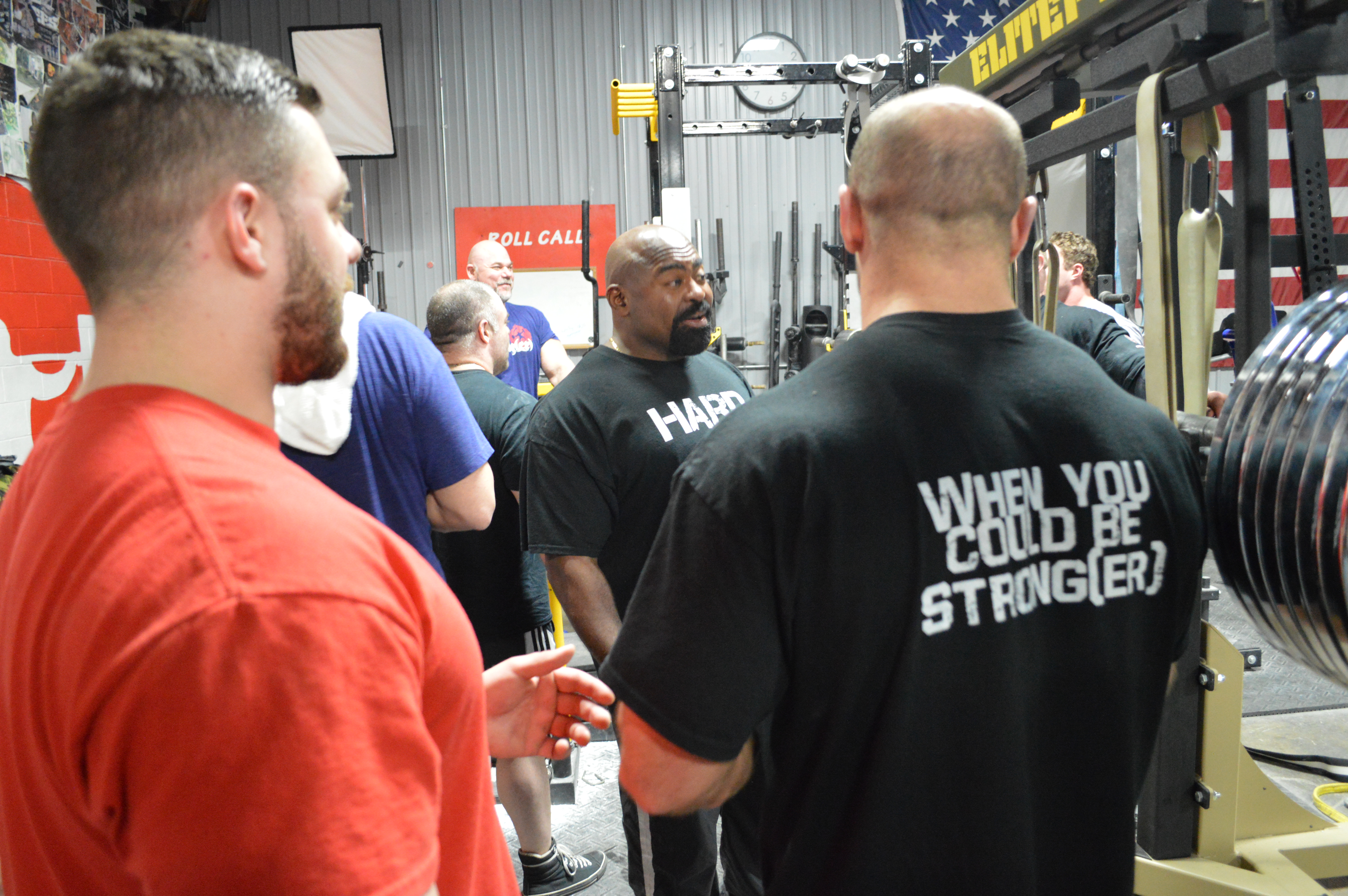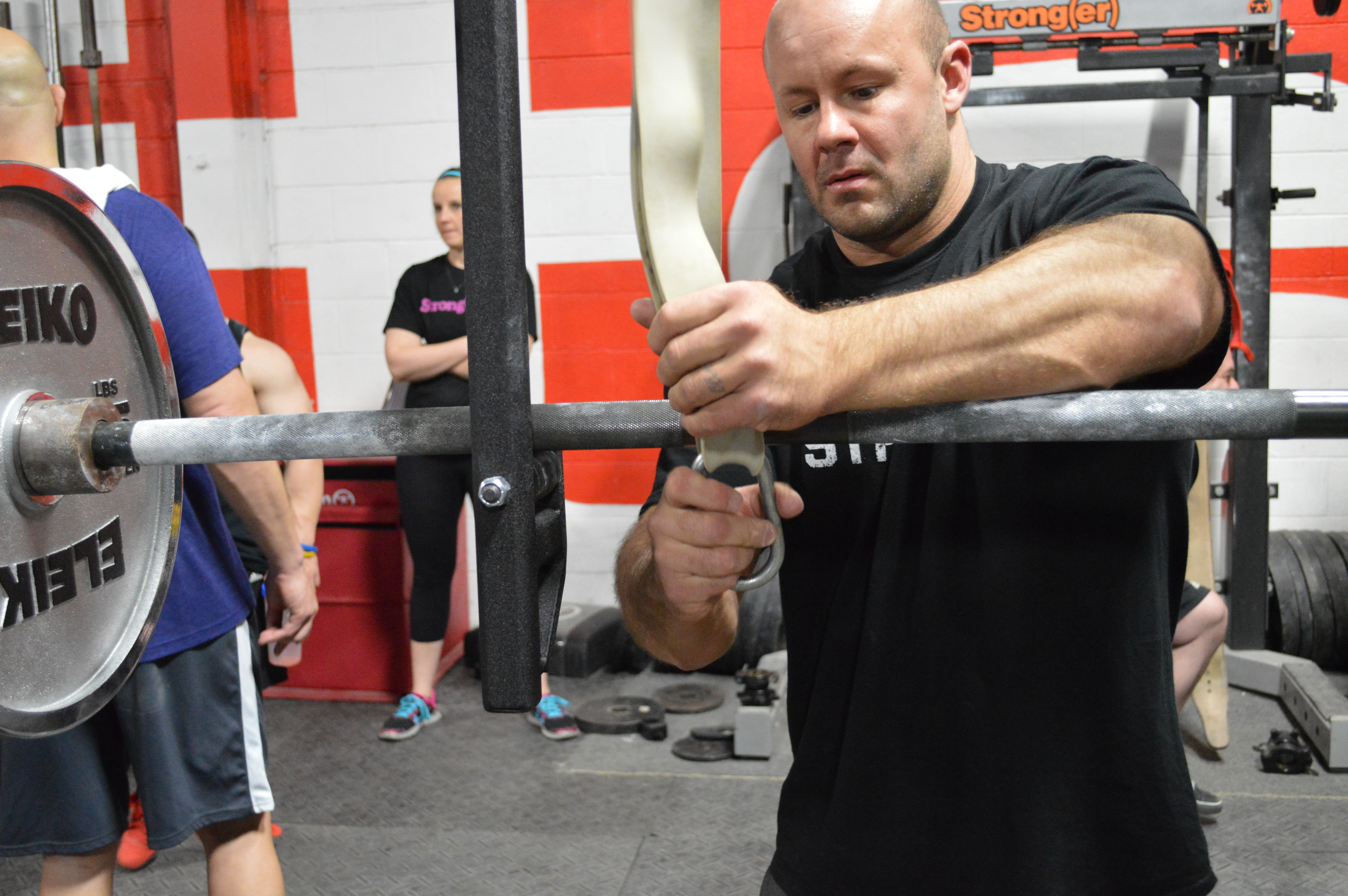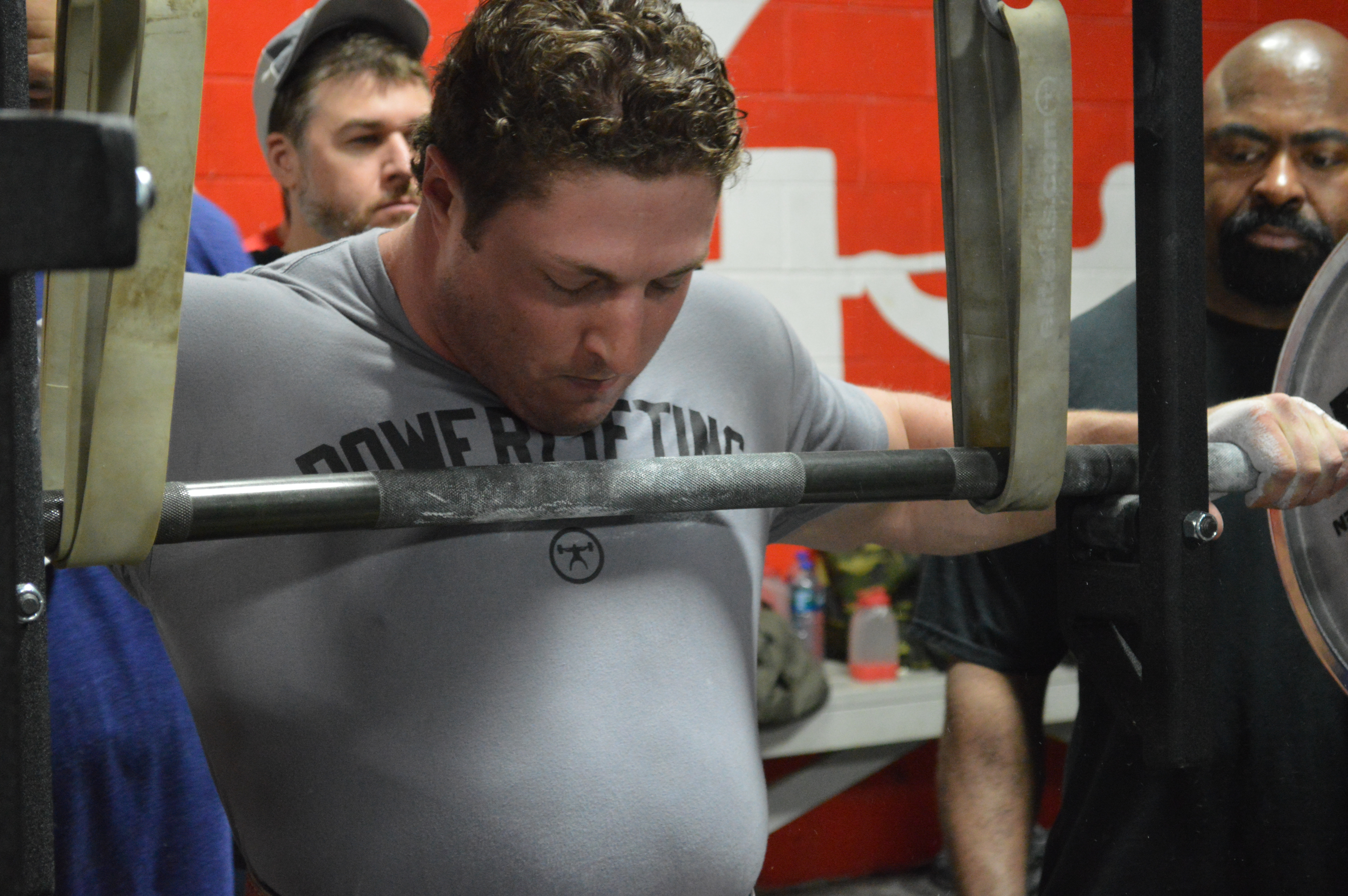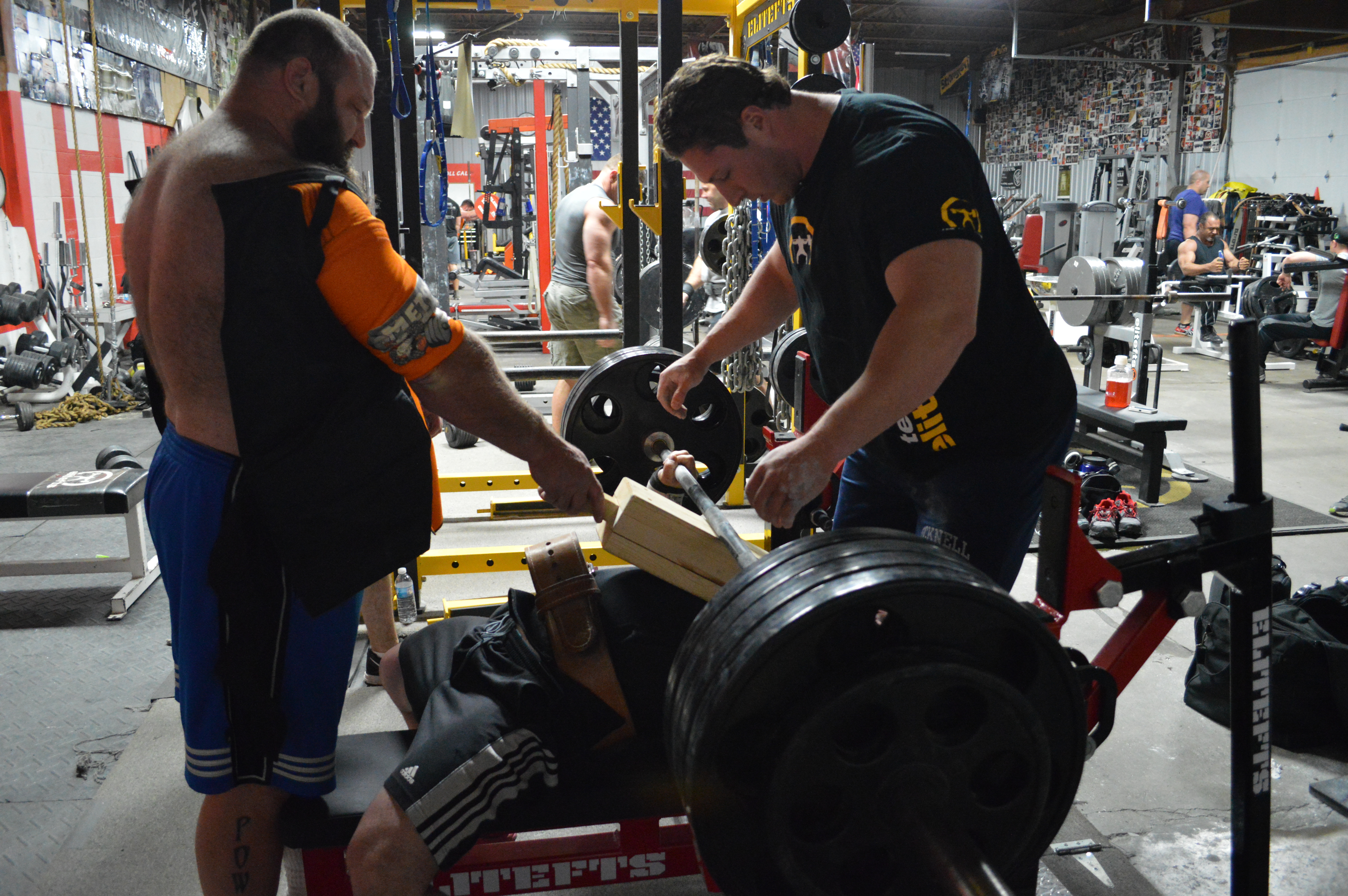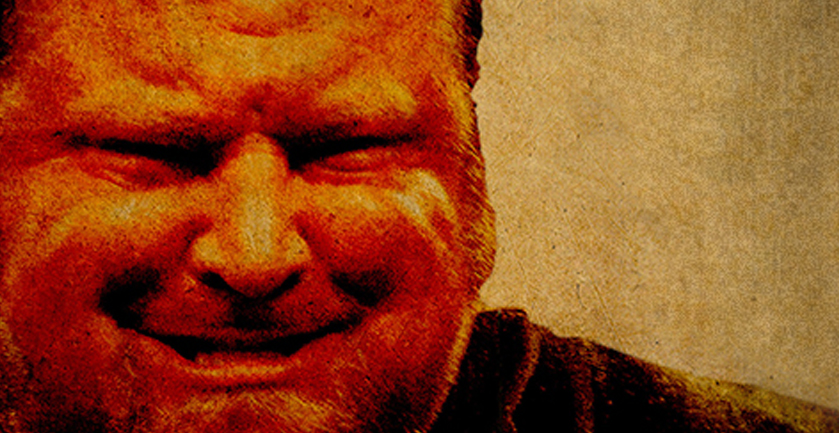
There's a saying that goes “always choose the one right tool for the job.” I've always liked this saying, and as usual, I see where life imitates lifting. I would take this saying one step further though and say that there is one right tool for the job, but if that one right tool isn't working, you probably aren't using the tool correctly.
Say that the job is training and getting stronger. The tool would be the training programs or methods that we use to get stronger. In this case, I'm thinking specifically about the training programs. Often I see lifters rummaging through their tool boxes, throwing every single tool they have at the job. When that doesn't work, they buy more tools. This is extremely frustrating to watch. I've talked with other top lifters as well as trainers who feel the same way. I've listened to countless stories from trainers with clients who will randomly add things into the program, jump from their program to the newest fancy named program or basically do whatever they want when the trainer or coach turns his head. These clients never give the training program time to work.
RELATED: Loyalty Issues and Disappointing Clients
Many of these types of stories come from trainers who train over the internet. I've even spoken with lifters who have written programs for others and then receive calls from these people complaining that the program didn't work for them. More often than not, it turns out that they didn't follow the program like they were supposed to. But they didn't get immediate results, so they randomly changed the program or added in other things from other programs. It seems that lifters will pay these trainers or experts but somehow not believe in what they teach. They'll buy programs, read articles and spend time learning about a program only to not follow it. They are so quick to jump ship for some other trainer or other program. These types of lifters also seem to be obsessed with the newest, prettiest, shiniest programs, exercises or lifting equipment. This behavior makes no sense to me and rarely leads to someone getting strong.
I was always very loyal to the people who taught me. I even got a tattoo as a tribute to them. I was early to lifting but late to powerlifting. I was even around powerlifting a couple years before I decided that I didn't know enough to get to the level I wanted. At that point, I didn't randomly pick someone to listen to or learn from. I did a lot of research before I chose a style I wanted to learn and a lifter I wanted to learn from. Even though I had many years of lifting experience under my belt, powerlifting was a different story that I needed to learn.
As most people know, my first powerlifting seminar was with Dave Tate. I learned a ton about technique and the conjugate method. It was the best money I've ever spent for my strength. I chose Dave because he was an accomplished lifter and had ties to other great lifters and coaches. He had trained in legendary gyms with legendary coaches and lifters. He had been in the trenches and had a great history. It wasn't a random choice to learn the conjugate method or to learn from Dave. It was a very important decision that I put a lot of thought into.
The best coach you can ever have is yourself.
After my first seminar, I immediately threw away everything that I had been doing, from technique to my training style. I started everything over from scratch. I didn't have all the equipment that I wanted like chains or bands, but I stuck with the principles and bought what I could when I could. If you think that this went perfectly like some fairy tale, you're mistaken. Well, maybe it did go like a fairy tale because those usually have plenty of issues in the beginning and middle but have a great ending. My point is I had plenty of problems when I started, but I never gave up on what I was taught.
There were plenty of times when I could've said, “This program just doesn't work for me. I'll find another one that will work!” Instead, I thought that maybe I had misunderstood something or was executing something incorrectly. I chose the conjugate method and Dave for a reason, and the principles that he had taught me made sense. For me, it wasn't logical to throw the method out the window just because it wasn't working, at least not until I had tried everything I could to make it work. The logical thing to do was to look at how I was executing the method. For example, after I started using the conjugate method, I would train for about three or four weeks and then everything would go to shit. The same thing would happen with my training partners. We did this for some time but always with the same results. I needed to find a solution for this problem, not throw the whole thing out the window.
I ended up calling Dave to get his point of view. This call gave me the confidence to tweak things a bit and allowed me to bounce ideas off someone who knew way more than me and had a ton of experience with this style of training. It also made me see that the conjugate method is basically just an outline to follow.
As my team and I got stronger, there were more times when we could've given up on the original methods that I had learned in that first seminar. We never did though. We always sat down to put our heads together and made the tweaks to keep getting stronger. Throughout my powerlifting career, I was always loyal to those same principles that I had learned from Dave. Yes, there were a ton of tweaks and things were a bit different from what they were in the beginning, but the principles are still there. I picked the one right tool for the job. I had to learn and relearn how to use that tool from time to time, but I always had the right tool in my hand.
There isn't any shortcut to getting seriously strong. It takes time. In fact, it takes lots and lots of time, but you have to stay the course and weather all the storms. When you try to sail around problems, you take the chance of losing your way and you make the journey longer. When you're trying a new program or exercise, it also takes time to know if it's working. You won't necessarily see immediate results. There are just too many variables involved. For example, say that you start doing some force training and working on your dynamic speed. If your explosiveness is horrible, it will take a while for this training to show in your lifts. You'll have a period of just learning how to explode and develop even basic speed. Once it begins to show though, you'll see big gains in your lifts.
Does the program make sense to you?
Say that you start a Westside program where you use your posterior chain a lot, but yours is very weak. It will take time to build that up so that you can see it in your lifts. But again, it will jump good once it starts. Maybe you've found a trainer or strength coach you really like, so you start working with him. If your lifts don't go up instantly, that doesn't mean that he isn't any good. He may have to rework all your technique and strengthen your weak points or it may even take some time to discover what style of coaching works for you. There are so many variables with strength that you just can't expect immediate results. I've never met anyone who gained major strength in a short period of time.
I've been known to use the following sayings: “The best coach you can ever have is yourself,” “no one can ever know your body as well as you,” and “the best program is one that you can bend to fit your own needs.” These statements may seem contradictory to what I just explained, but they aren't. The goal of every strength athlete should be to evolve to the point where you are your own coach and where you know yourself best and what your body needs to keep getting stronger. Once you're at this point, you won't need a trainer or someone's program. It takes years to reach this point though, and we all need some assistance getting there.
I was at this point when I sought out Dave and when I sought out others I respected who used the same style of training. I'm not saying that you shouldn't bend or tweak your training program. I think that's a huge part of the learning process, but if you're paying someone to train you, at least give them the respect that they deserve. Listen to them and give their coaching a chance. After awhile, you could ask them about things you think might help or things you're interested in changing. Give them reasons why you feel a certain way and respect what they think. Give them the time to see if what they're doing is working first. Honestly, you should always be giving them feedback about yourself anyway. To me, what you're thinking and the ideas that you have are all part of that feedback.
No one can ever know your body as well as you.
When you're trying a new program, you also need to give it time to see if it's working for you. Obviously, I'm not against making changes, but give it a chance first. You need to give each thing you change time to work as well. You should know for sure if an idea works or not before moving on or changing things. If, after a fair chance, it isn't working, then you should first ask yourself if you're executing the program correctly. Try talking to other lifters or coaches who have used the program and find out if they've made tweaks. Figure out what worked for you that you liked and what didn't work for you. Make logical changes and stick with them long enough to learn whether or not they're good changes. This can be a long process, but it's how you learn. Very little is learned when you jump from program to program or trainer to trainer.
The idea of the meathead lifter is fun, and sometimes I enjoy playing the fool, but it isn't true. All of the top lifters are smart, at least in the world of strength. They don't become the strongest people to walk the earth by accident or by just beating themselves up in training. It isn't rocket science or quantum physics, but it isn't simple stuff either. The strongest part of our bodies is still our brain because it controls our muscles, so use it.
When you decide to try a new program or get a new trainer/coach, take some time to research it. With today's modern conveniences, there isn't any excuse for not researching something. Take some time to think about the program or trainer/coach you want to try. Does the program make sense to you, and does the coach sound like he knows what he's talking about? Has anyone you know gotten stronger using that program? Is the trainer/coach strong, and who has he trained? Even if you don't have much experience with lifting or strength, you can still use common sense. If you don't believe in it, there isn't any sense in even trying it, so find one you do believe in.
Once you find a program or coach, give it or him a fair shake. Give the coach time to see if he knows what he's doing. Often, it takes time to see big results. Give the program time to see if it's working. If it works, that's awesome but still take the time to analyze what about it is working. Every program will need to change as your strength changes, so this may end up being very valuable information later on. If the coach or program isn't working, don't immediately jump ship. Ask yourself if you're using the tool correctly. Are you executing the program exactly like it was meant to be executed? If so, what can you change to make the program fit your individual needs? Again, when you make these changes, give them a chance. It's worth researching others who have used a similar program to see what changes they may have made.
Are you executing the program exactly like it was meant to be executed?
If you're with a coach and you aren't making the gains you want, sit down with that coach. You should've chosen that person for a reason, so give him a chance. Let him know how you're feeling and ask him what else you may be able to do. Ask him if there are any changes he recommends. If you have ideas, ask him what he thinks of them. As a coach myself, I completely respect someone who comes to me with issues as long as he brings them with respect toward me. In fact, I love when someone wants to make the training work and he's been thinking enough about it to have some ideas of his own. Of course, I always ask the person why he thinks his ideas would help or what the reasoning is behind his ideas.
Think about strength as a journey. The more you can learn, the faster you'll gain strength and the stronger you'll end up being. Take time to pick the right tool and then make sure you're using that tool correctly.










